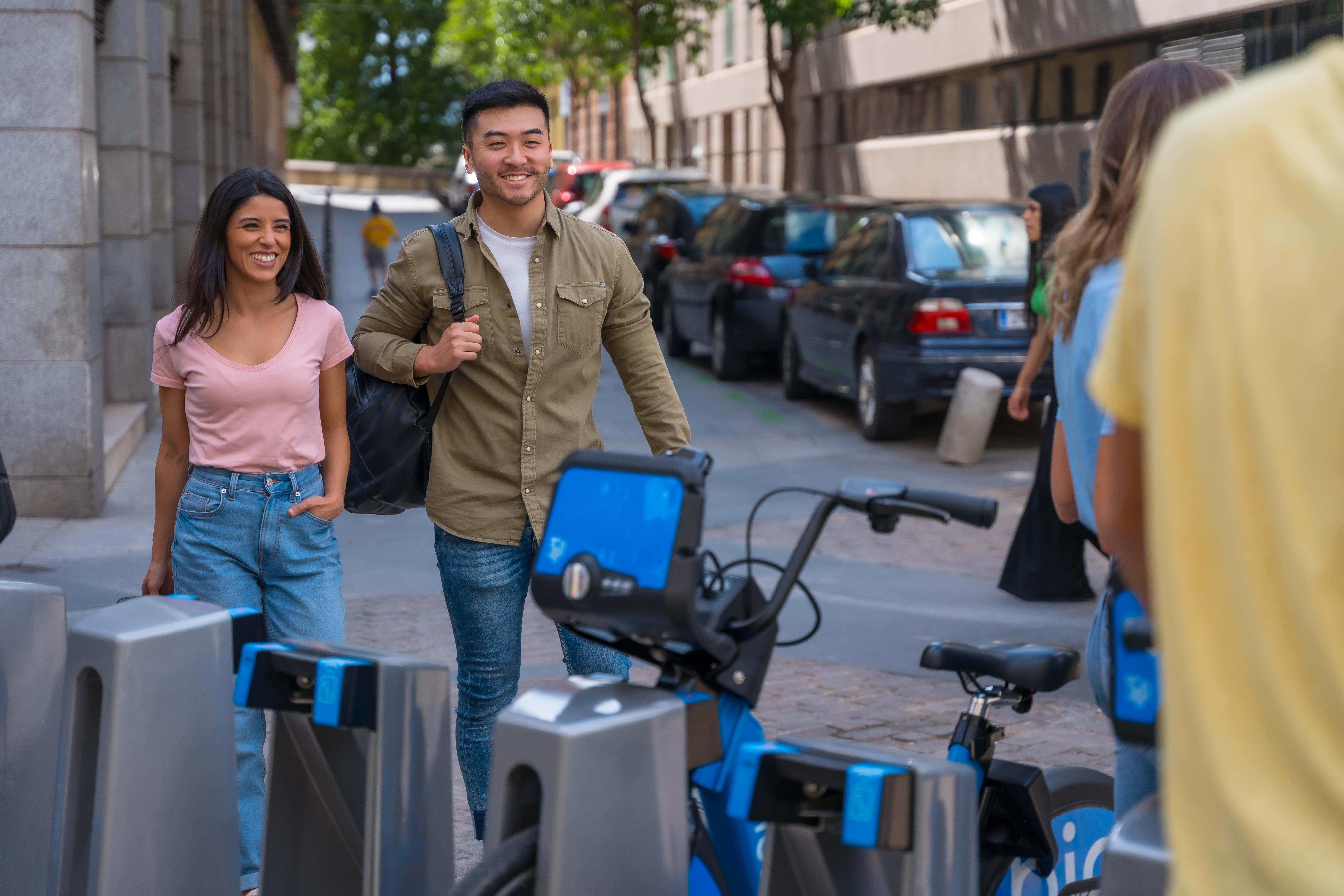



Across the UK—and particularly in London—bike and e-scooter rental stations are becoming a defining feature of sustainable urban transport.
Driven by the shift toward low-carbon mobility, local authorities and private operators are rolling out shared micromobility networks to reduce congestion, cut emissions, and complement public transport.
For property owners, developers, and investors, these stations present a unique commercial opportunity: leasing space for bike or e-scooter docks generates passive income, enhances site accessibility, and supports ESG targets. Fraser Bond advises landlords and developers across the UK on integrating micromobility infrastructure into commercial, residential, and mixed-use assets.
Bike and scooter stations can be dock-based (with fixed charging points) or dockless, managed via GPS and geofencing. In both cases, operators require clearly defined land rights, access to power, and safe user circulation.
Common UK operators include:
Santander Cycles / TfL – London’s public cycle hire network
Dott, Lime, Voi, Tier, Beryl – Licensed e-scooter trial operators under the Department for Transport framework
Nextbike / Beryl Bikes – Regional cycle-hire networks in Cardiff, Bristol, and the Midlands
These networks often partner with landlords, councils, and developers for long-term site licences or leases.
| Model Type | Description | Typical Revenue / Benefit |
|---|---|---|
| Fixed Ground Rent / Licence Fee | Operator pays fixed annual fee for station footprint | Predictable income, low risk |
| Revenue-Share Agreement | Percentage of usage or per-ride fee | Aligns interests, higher upside |
| Hybrid (Base + Override) | Base rent plus usage-linked bonus | Balances certainty and performance |
| Public-Private Partnership (PPP) | Collaboration with local council and operator | May attract grants or co-funding |
Each model must define: power access, signage rights, insurance, maintenance, indemnities, and end-of-term reinstatement.
Location & Footfall – High-visibility, safe areas near transport hubs, retail, or residential entrances.
Surface & Access – Level, hardstanding area with safe pedestrian and cycle flow.
Power Supply – 230 V electrical supply required for charging stations; some use solar assist.
Planning Consent – Check local authority permissions; temporary stations may qualify under permitted development.
Safety & Compliance – Adequate lighting, CCTV, and no obstruction to public footways.
Branding & Wayfinding – Integrate signage and digital mapping for ease of use.
Maintenance & Liability – Operator typically responsible; landlord must ensure access rights and periodic inspection.
Micromobility Growth – Over 60 UK towns and cities now host rental bikes or e-scooters under pilot or permanent schemes.
EV Integration – Some operators now co-locate charging for e-bikes, e-scooters, and EV cars in shared mobility hubs.
Planning Policy Alignment – Mobility infrastructure increasingly required in new-build consents.
London Example – TfL and boroughs continue expanding Santander Cycles and trial scooter zones in Camden, Westminster, and Southwark.
Corporate & Campus Schemes – Employers and universities are introducing private bike-share fleets within estates.
Generate Passive Rental Income – Small footprint, minimal maintenance.
Boost ESG & Green Transport Credentials – Supports sustainability reporting and tenant expectations.
Increase Footfall & Connectivity – Improves accessibility and visibility of retail or office assets.
Enhance Development Viability – Meets planning conditions for sustainable transport.
Align with Future Mobility Trends – Future-proofs assets for upcoming transport modes.
| Risk | Fraser Bond Recommendation |
|---|---|
| Under-utilisation | Pilot installations and data-driven demand modelling |
| Vandalism or theft | Require operator insurance and CCTV coverage |
| Operator insolvency | Include reversion rights and reinstatement clauses |
| Regulatory change | Maintain short-term licence flexibility |
| Maintenance failures | Include service-level agreements (uptime, cleaning, repair) |
Fraser Bond supports clients through every stage of micromobility deployment:
Feasibility & Demand Modelling – Assess local ridership potential and site viability.
Operator Selection & Negotiation – Engage with licensed UK operators to secure favourable lease terms.
Planning & Legal Support – Manage permissions, indemnities, and infrastructure compliance.
Commercial Modelling – Compare fixed-rent vs revenue-share scenarios.
Portfolio Strategy – Scale bike and scooter stations across multiple assets under a master framework agreement.
To explore bike and e-scooter station leasing opportunities for your London or UK property assets, contact FraserBond.com for bespoke advisory and partnership development.